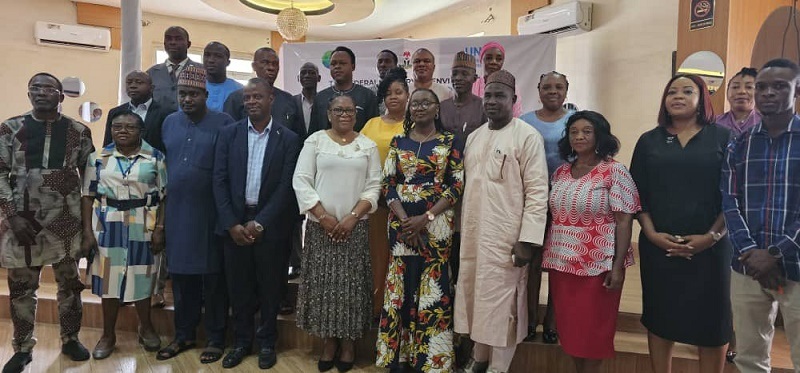A cross-sectoral group of representatives from the various Ministries, Departments, and Agencies (MDAs), civil society, academia, the media, and the private sector has urged the government to coordinate its efforts among the various MDAs in charge of putting various adaptation initiatives into action in order to assist Nigeria in meeting its agreement and enforcing its commitments under the international treaty.

According to them, coordinating the operations of the MDAs will help the country in developing a strategic plan that will monitor and ensure the proper implementation of all adaptation efforts.
Giving the encouragement on Tuesday, April 4, 2023, in Abuja, during an inception meeting organised by the Ministry of Environment’s Department of Climate Change (DCC) on Communication and Stakeholder Engagement Strategy for the National Adaptation Plan (NAP) process in Nigeria, they are also seeking a national adaptation framework that identifies those responsible for the crisis’s problem, as well as the various regulatory authorities in charge to accelerate the nation’s climate ambition.
Dr. Famous Eseduwo, a director at the Federal Ministry of Communications and Digital Economy, asked the stakeholders what kind of communication framework Nigeria needs to achieve its adaptation goals.
This is important to him because, in terms of raising general public awareness of climate change, he believes that much has been done in areas of citizen sensitisation and would like to see a more confrontational strategy that addresses all of the inactions responsible for Nigeria’s climate change failure.
“I think it’s high time for us to talk less and do more in terms of practicality. Let this strategy be bold enough to tell the government about its inactions,” he asserted vehemently.
The environmentalist, who has published numerous research works on the various facets of the environment and its protection, therefore gave the team the assignment to think carefully when attempting to design this planned document in order to ensure that it examined all the factors that were accountable for the failure and delivery of the nation’s previous adaptation programmes.
In response to the concerns raised by the attendees, the NAP project coordinator, Mr. Kayode Aboyeji, clarified that the gathering was an initial meeting designed to gather stakeholder opinions on how to create a communication strategy to ensure the NAP project is realised.
Mr. Aboyeji informed them that the exercise also necessitates a number of other tasks, all of which will be carried out by the DCC in order to produce a comprehensive adaptation document that addresses all of the nation’s needs.
He explained to the audience that the United Nations Framework Convention on Climate Change (UNFCCC) developed this approach to help emerging nations to have a common understanding.
He lamented the fact that using Nigeria as a case study to support the UNFCCC position reveals that local government is operating independently and that the states and federal government are also operating in silos, which is the reason the UNFCCC came up with the idea of developing nations creating a framework to bridge these gaps.
The NAP project coordinator expressed his satisfaction that all required parties, including the government and the private sector players, were present at the meeting so that they could work together to develop solutions for all of the problems brought up and come to a consensus on the best course of action by creating an efficient communication framework to direct the nation’s adaptation process.
“I want to thank each and every one of you for the issues you have raised thus far because that is the essence of our gathering today,” he said, assuring that “the country will be better” by the time Nigeria has a NAP document.
In her opening remarks, Dr. Iniobong Abiola-Awe, director of the DCC, informed participants that Nigeria has received readiness support from the Green Climate Fund (GCF) to advance its NAP process through a project titled “Strengthening Nigeria’s Capacity to Advance the NAP Process.”
This project, she said, is in line with the Cancun Adaptation Framework (CAF), which asked parties to develop and implement NAPs to identify medium- to long-term adaptation needs.
“Its goal is to develop and implement strategies and programmes to address those needs in a participatory and fully transparent manner,” the DCC chieftain explained.
The event featured several activities, including the first and second presentations of the steps involved in creating a communication strategy as well as the overview of the NAP project. The participants were later divided into smaller groups to determine the type of communication and engagement strategy that Nigeria needs to deliver for adaptation as well as the climate change mandate.
By Etta Michael Bisong, Abuja
